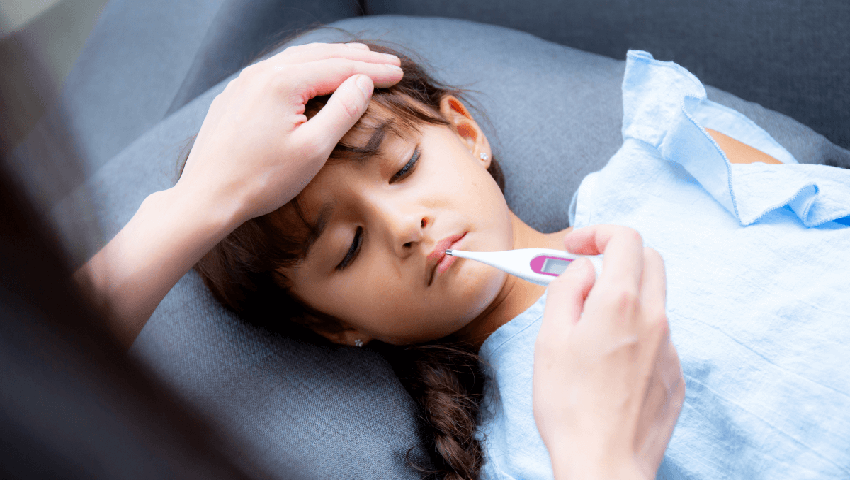
- 13/06/2025
- Goodfaith Healthcare
- 0 Comments
- Blogs
Everything Parents Should Know About Fever in Children
Fever is one of the most common reasons parents bring their children to the clinic. While it’s natural to worry, not all fevers are serious. As a mother and a doctor, I understand that you want answers—fast. That’s why I, Dr. Anuja Pakhare – Child Specialist in Hinjewadi, created this guide to help you handle your child’s fever safely and confidently.
What is Fever?
Fever means your child’s body is fighting an infection. A temperature over 100.4°F (38°C) is considered a fever. It’s usually due to a virus, and in most cases, it resolves on its own. But as a parent, you must stay alert. A good Pediatrician in Hinjewadi can help you identify when it’s just a mild issue or something more serious.
Common Signs of Fever in Children:
Look for these:
- Warm forehead, flushed cheeks
- Chills or shivering
- Low activity, excessive sleep
- Loss of appetite
- Fast heartbeat or breathing
- Crankiness or irritability
When Should You Visit a Doctor?
- Your baby is under 3 months and has any fever
- Fever lasts more than 72 hours
- The child has vomiting, rash, or laboured breathing
- Your child looks confused, unusually sleepy, or has seizures
- The child shows poor appetite or appears weak and dull
For expert help, visit a trusted Pediatric Clinic in Hinjewadi with complete child care services.
What You Can Do at Home?
Here are parent-tested steps to manage fever at home:
- Check the temperature using a digital thermometer
- Keep your child cool—no heavy blankets or tight clothes
- Fluids are essential—offer water, coconut water, ORS, soups
- Give paracetamol if prescribed, based on weight (never guess the dose)
- Let them rest—avoid school or outdoor play
Never use cold water baths or adult medicines. If unsure, consult your paediatrician.
Important Things Parents Must Remember:
- Teething does not cause high fever
- Avoid antibiotics unless advised—most fevers are viral
- Watch for dehydration—dry lips, no tears, less urine
- Fever after vaccination is common and temporary
- Don’t panic—stay calm and observant
Types of Fever in Children:
Understanding the cause helps with better care:
- Viral fever: Most common; needs rest and fluids
- Bacterial infection: May need antibiotics
- Dengue or Typhoid: Needs tests and close monitoring
- Malaria: Seasonal and needs early detection
- Post-vaccine fever: Mild and short-lived
Child Fever Care by Dr. Anuja Pakhare:
At my Child Clinic in Hinjewadi, we focus on gentle evaluation, child-friendly explanations, and parent education. Every child is different, and fever management is tailored to their age, history, and symptoms. I ensure parents leave with clarity, not confusion. As a parent, it’s natural to feel anxious when your child has a fever. But remember, not every fever is serious—what matters is how your child is behaving, eating, sleeping, and responding. Timely attention, calm observation, and the right medical advice can make a big difference in how quickly your child recovers. If you ever feel unsure, don’t hesitate to reach out. At our clinic, we focus on both medical care and emotional reassurance for parents.
Dr. Anuja Pakhare – Pediatrician and Neonatologist | General Physician in Hinjewadi | Pediatrician in Hinjewadi, is committed to offering personalised care that’s rooted in compassion, experience, and evidence-based medicine. Fever may come and go—but with the right support, your confidence as a parent stays strong. We’re here to help your child feel better, and to help you feel at ease.
